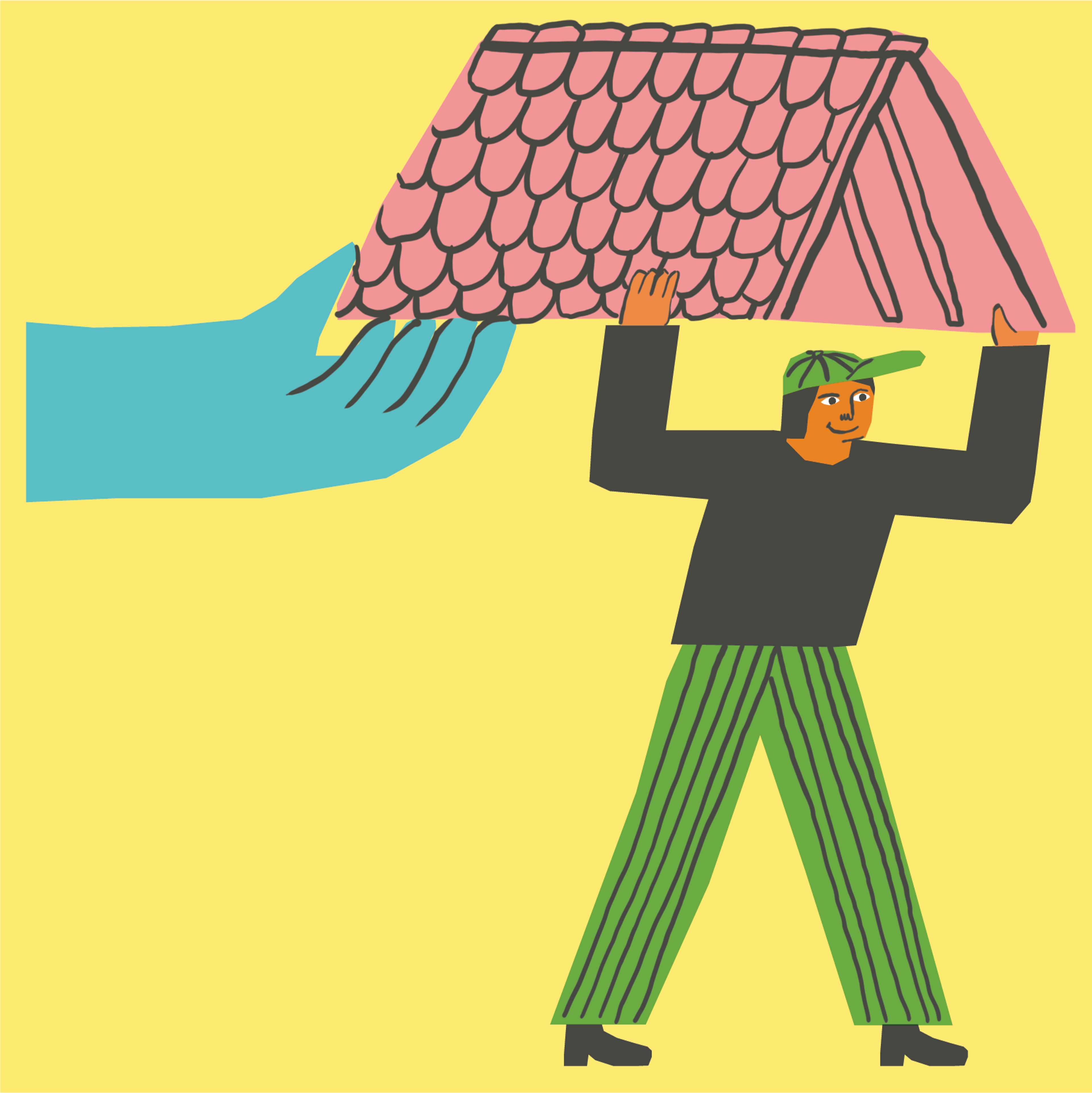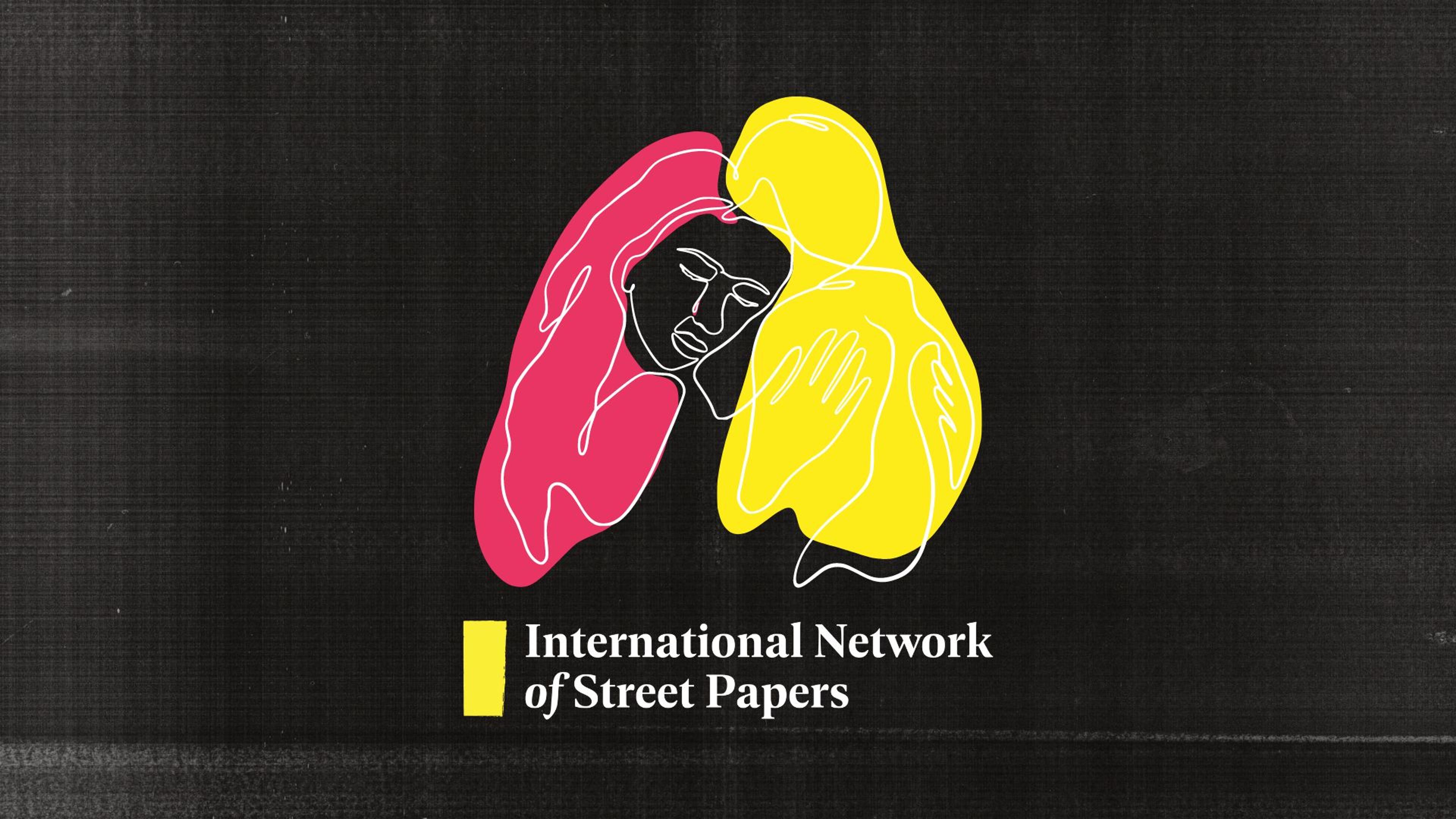Exposed to a dangerous heatwave and unable to work, street paper vendors are on the front line of the climate crisis
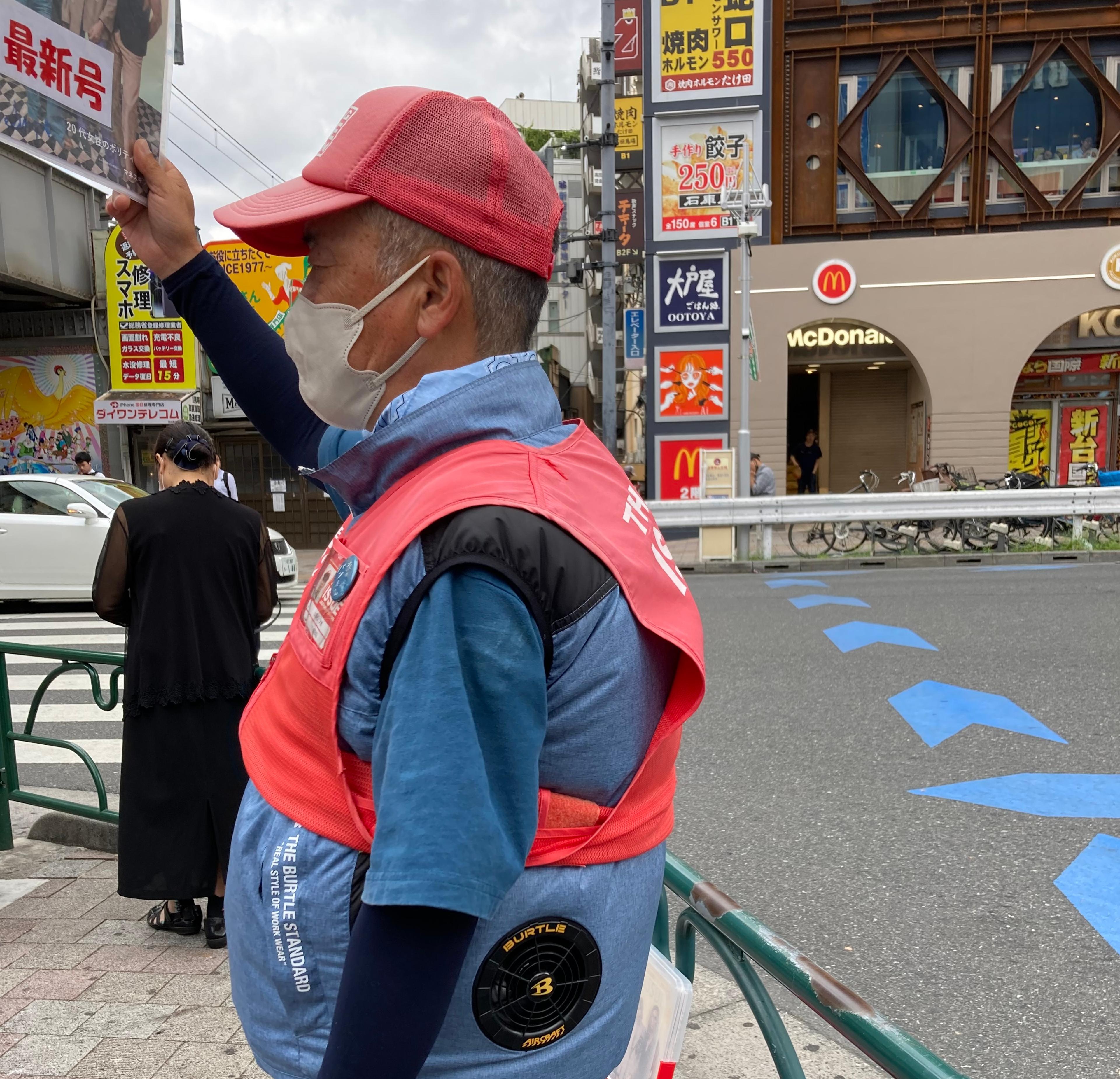
A Big Issue Japan vendor stands on the street in the heat wearing a jacket that regulates air to cool the wearer down.
By Steven MacKenzie and Tony Inglis
- News
As extreme heat has spread across Europe, and other parts of the world deal with frighteningly high temperatures, street papers and their vendors explain how it affects their work.
Street paper vendors across the world might come from many different circumstances, but they have always had common challenges to overcome. In the past, these focused on homelessness, poverty, social exclusion and inequality. But now, as roasting temperatures scorch much of Europe and other parts of the planet, the climate crisis has been added to the mix and, for some, is becoming the biggest issue of them all.
The International Network of Street Papers has been platforming stories from the marginalised people disproportionately affected by extreme weather. The Climate Disaster Project in 2022 painted a picture of how vendors at Vancouver street paper Megaphone dealt with the Canadian heat dome in the summer of 2021. Now, street papers and their vendors in other parts of the world are reporting back on how this summer’s frighteningly high temperatures are impacting their lives.
After heatwaves in the south of Italy, and storms and tennis ball-sized hailstones in the north, Sabrina Montanarella from Milan-based street paper Scarp de’ tenis shares the story of a 50-year-old man experiencing homeless who died in Rome. Sorriso – which means smile, because of his lack of teeth – was found dead on a bench on 22 July. “He died from heat and indifference,” Montanarella says.
The weather has been unpredictable even in the northern parts of the country.
“This summer, the weather has been really crazy,” says Robert Okosodo, who sells the street paper zebra. in the South Tyrol region of Italy. “So far, we have been having either very hot days or heavy rain. These weather conditions are affecting the selling, because when the sun burns too much or it rains, there are no people on the streets. I sell the majority of papers in the morning between 10 and 12, and in July it’s been hard to find many other people outside.
“Physically it’s hard to sell the paper when the temperature gets high. I try to find a good spot in the shade and drink a lot of water. Here in the north of Italy, it’s very hard in the winter time as well because of the cold. I usually sell the paper in Brunico, a small town. There I have my regular customers and some who occasionally buy from me, including tourists mainly from Germany, Austria and other regions of Italy. Usually after two weeks from the issue of the new edition of the paper I’ve sold almost 400 magazines. This month I’ve only sold 200 copies so far. So I would say that the numbers don't lie. It’s hard to be a street paper vendor in these conditions, but I do not have any other choice right now.“
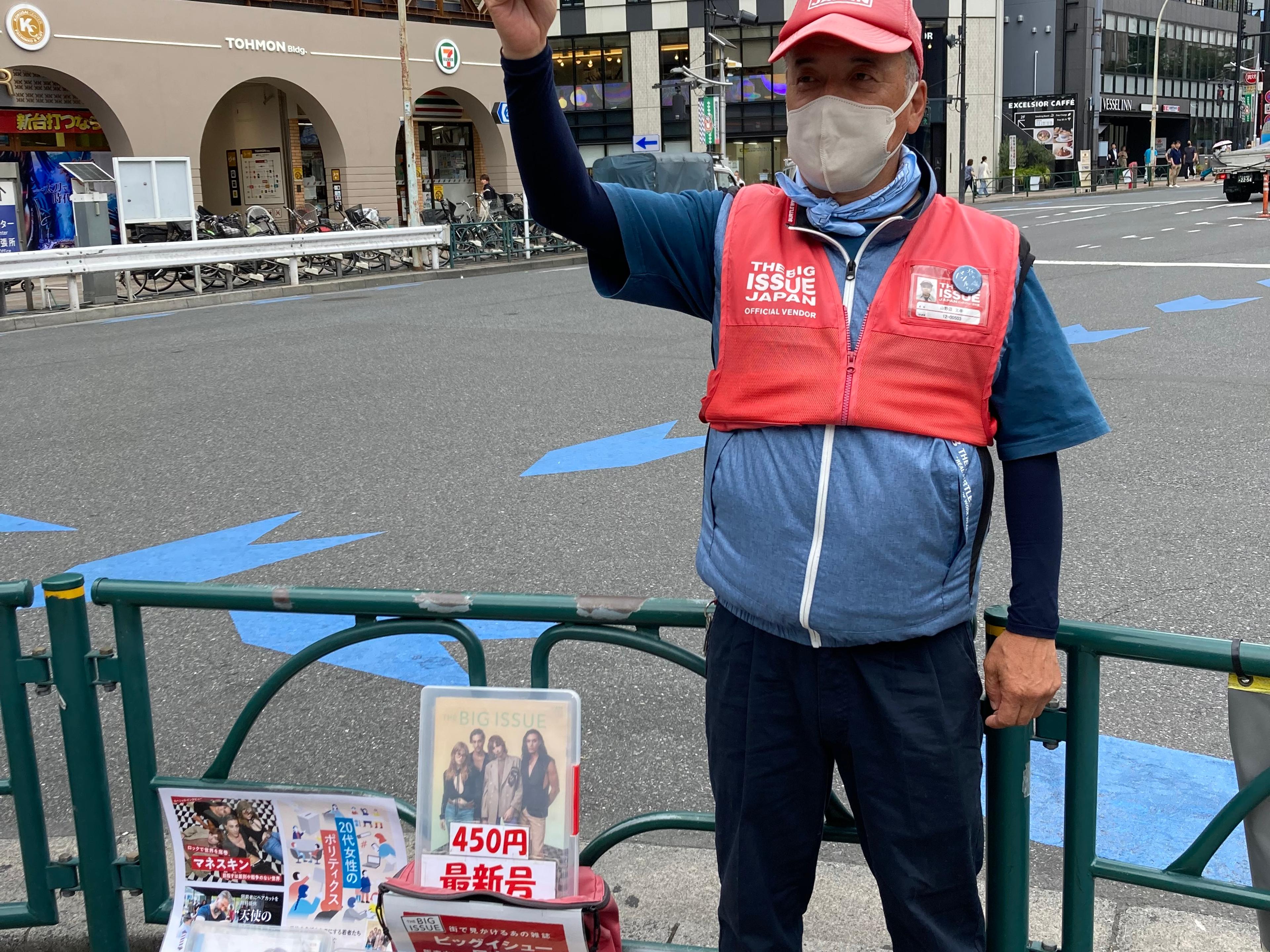
A Big Issue Japan vendor stands on the street in the heat wearing a jacket that regulates air to cool the wearer down.
Greece has been the epicentre of the heatwave. As temperatures in Athens exceeded 40°C on 15 July, the Acropolis was closed to tourists and a wildfire – like those affecting the islands of Corfu and Rhodes – raged a few miles north of the capital.
“We are expecting 41°C today,” says Ioanna Sakketa when she checks in. Sakketa is director of development and partnerships and is working hard to support around 70 vendors who make their living selling magazines on the streets of the city.
When temperatures were surpassing 40°C for days on end, Shedia made the difficult decision to stop selling magazines to vendors. “Of course, we had reactions from our vendors,” Sakketa says, “but we were afraid that they wouldn’t take care of themselves on their own so we decided not to distribute the magazine.”
Greece always has warm summers, but the sustained heatwave means conditions are worse than previous years. “Now it’s an alarm for everyone,” Sakketa explains. “In the news they say take care of yourself and give instructions about how to go out. Last year it was warm, but this is something else. The problem that I see coming is what if this continues for the whole summer? Then what do we do? We stopped selling magazines for a while. But then if it continues how do you reassure their income?”
To support their vendors during the heatwave Shedia is providing extra free magazines to boost their income once selling is permitted. “The good thing is that none of our sellers is without a place to stay,” Sakketa adds. “They’re not living in the streets.”
Sakketa has been developing “protected points of sale”. These are the result of partnerships with places like supermarkets and shopping malls which allow a vendor to sell on their sheltered – air conditioned – premises, but often only for a couple of hours a couple of days a week. Now she wants to dramatically extend the programme.
“It’s not that everybody says yes to these points of sale very easily, or perhaps they give it to you with some conditions, but there is the urgency. We say to them, ‘listen, vendors can’t go out, we need to increase the days and the hours. And companies that haven’t done this with us yet, we’re going to ask that they open their doors now.”
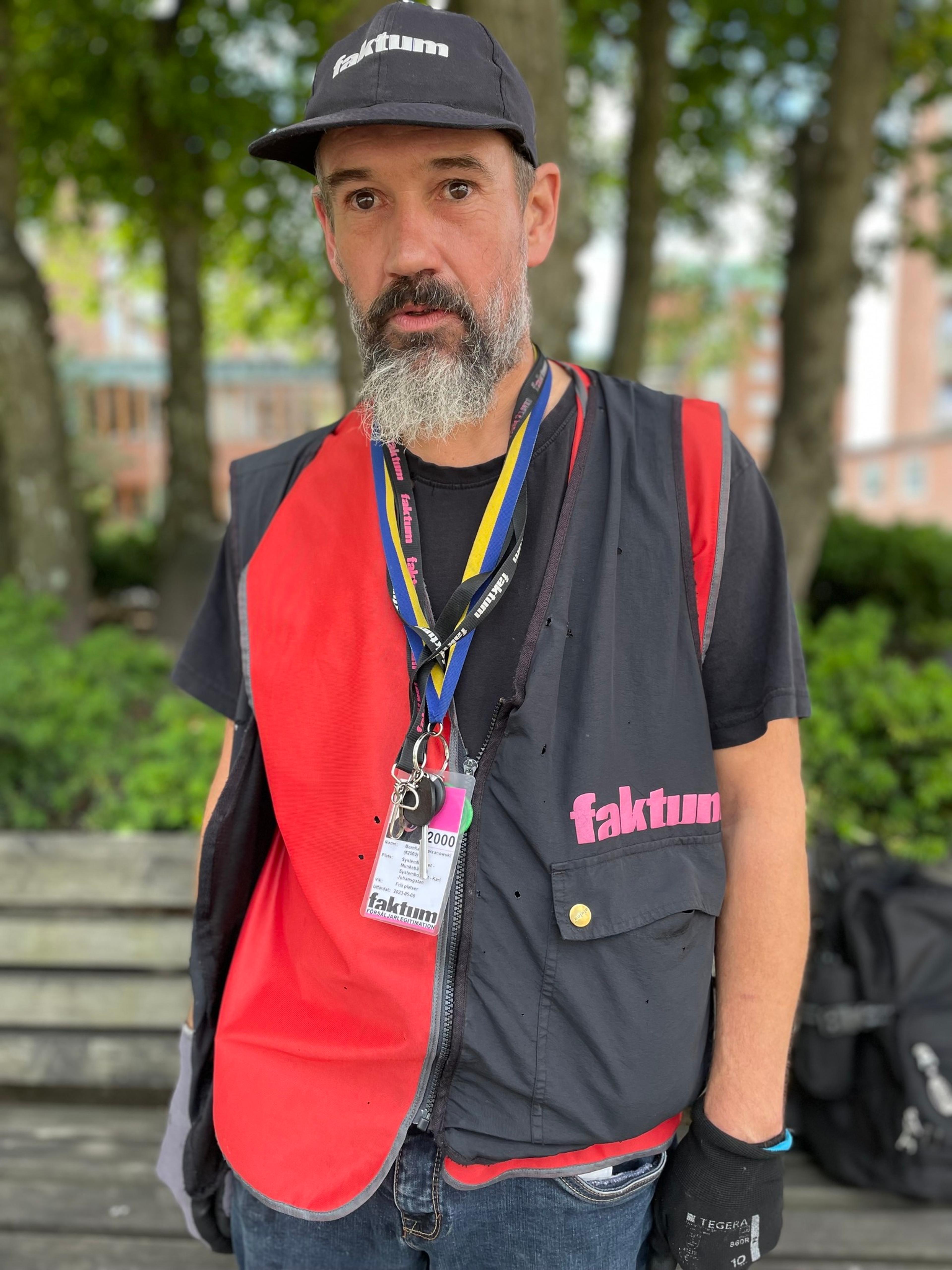
Faktum vendor Bernhard Perzanowski
Shedia is also exploring how to set up a subscription service. Subscription sales are already helping other street papers. Liceulice, based in Belgrade, Serbia, has also been battling the heatwave. They say that “more subscriptions mean less reasons for sellers at risk and high temperatures”.
A spokesperson adds: “Due to extremely high and dangerous temperatures, we advised our magazine sellers to take extra care of themselves these days, not to go out when the sun is hot, and if they have to, stay in the shade and hydrate as much as possible.”
On their Facebook page they added the following advice to their followers during the heatwave: “When you see vendors, please be mindful of them. They sell magazines even in the highest temperatures because they have to, because every issue sold to them means safety and survival.”
While the heat is not as extreme in northern Europe, street papers there are also aware of the difficulty it causes when the weather is not ideal. Bernhard Perzanowski, who sells Gothenburg-based street paper Faktum and remembers the trouble he had working during the Swedish heatwave of 2018, says: “It must also be tough in the countries that are poorer than Sweden which have also been hit by higher prices and inflation, it is also noticed on my sales here in Gothenburg.
“Sales of Faktum go best if it is between 22 and 25 degrees, neither too hot nor too cold.”
In east Asia, where temperatures have also hit worrisome levels, The Big Issue Japan has been doing what it can to assist its vendors. They have published a Q&A online so customers understand the measures being taken, which outlines their changes to pitch locations with more shade, and their distribution of water, food and other essential items. The magazine has also given out donations of jackets which have a cold air circulation mechanism to keep vendors cool when working in the sun.
The magazine’s vendors are remaining steadfast. “I don't mind the heat,” says Mr Sakamoto, a Big Issue Japan seller. “Winter is harder for me. I cannot sleep when it's freezing but heat does not bother me.”
Another vendor, Mr Shirane, understands the risks. “I worry about my health,” he says. “The heat is really getting to me. I had heat stroke in the past. It was a really scary experience.”
Support our News Service
We believe journalism can change lives, perceptions, and society - underpinning democracy for a more equitable world. Learn more about the INSP News Service and how to support it here.
